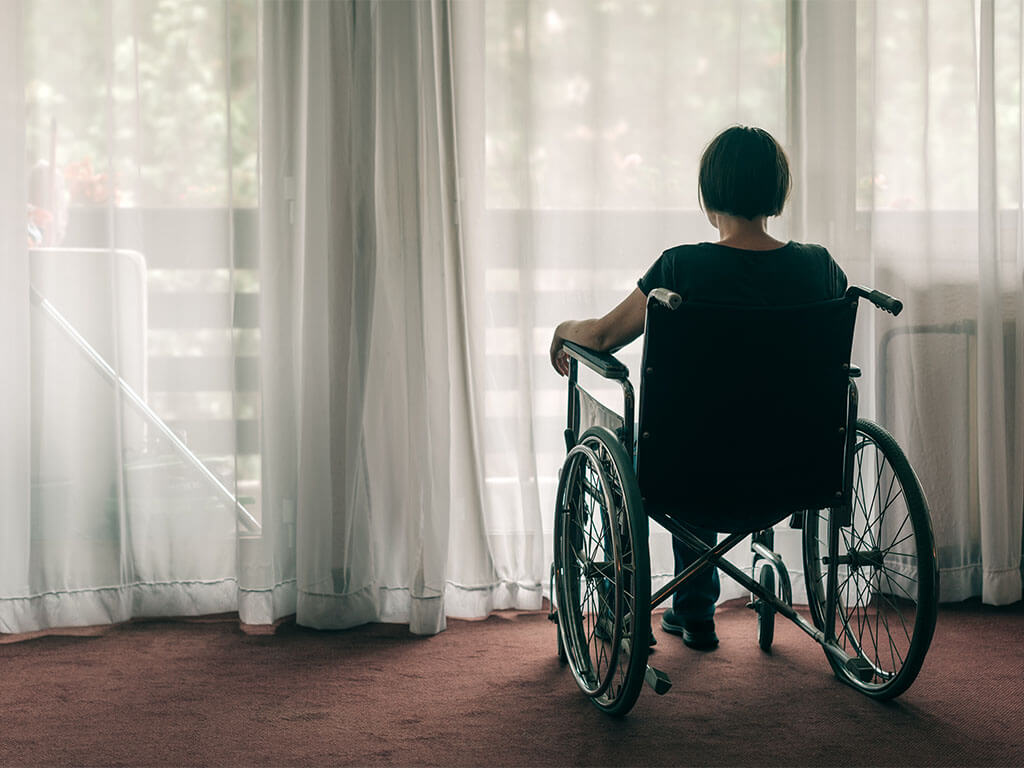
The dedicated legal team of Caputo & Mariotti
Nursing Home Abuse in Pennsylvania: Recognizing The Signs and Taking Action
October 22, 2023
Nursing home abuse is a concern that affects countless elderly residents across the United States. It’s a topic that demands attention, especially given the alarming statistics surrounding it. In this article, we will delve deep into the issue, focusing on the state of Pennsylvania, and provide guidance on how to address and prevent such abuse.
What is Nursing Home Abuse?
Nursing home abuse refers to any form of mistreatment or harm inflicted upon residents of nursing homes. This can range from physical harm to emotional trauma, financial exploitation, and even sexual abuse. The perpetrators can be staff members, other residents, or even visitors.
Startling Statistics on Nursing Home Abuse
- According to the National Center on Elder Abuse (NCEA), approximately 1 in 10 nursing home residents in the United States experiences some form of abuse.
- Common types of abuse include physical abuse, emotional or psychological abuse, financial exploitation, neglect, and sexual abuse.
- Research suggests that about 10 percent of all nursing home residents experience abuse or neglect. Elderly women are particularly vulnerable.
- More than two million cases of elder abuse are reported every year.
- An estimated 1 in 14 nursing home abuse cases are reported to authorities in the United States.
Types of Nursing Home Abuse
- Physical abuse: Inflicting physical pain or injury upon an elderly resident.
- Emotional or psychological abuse: Inflicting mental pain, distress, or anguish through verbal or non-verbal acts.
- Financial exploitation: Illegally or improperly using an elder’s funds, property, or assets.
- Neglect: Refusal or failure to fulfill any part of a person’s obligations or duties to an elderly individual.
- Sexual abuse: Non-consensual sexual contact of any kind.
Addressing Threats and Intimidation
One of the most sinister aspects of nursing home abuse is the intimidation or threats that perpetrators use to silence their victims. In Pennsylvania, if a victim has been threatened or feels endangered, it’s crucial to:
- Document any threats or signs of abuse.
- Seek the assistance of a home abuse lawyer
- Report the abuse to local authorities and the Pennsylvania Department of Aging.
Pennsylvania laws on Nursing Home abuse
In Pennsylvania, the protection of the elderly, especially those in nursing homes, is of paramount importance. The state has enacted several laws and regulations to ensure the safety and well-being of its senior citizens.
- Neglect of Care-Dependent People:
-
-
- Individuals who intentionally, knowingly, or recklessly cause bodily injury, serious bodily injury, or death by failing to provide necessary treatment, care, goods, or services can be held accountable under Pennsylvania law.
-
- Penalties for Elder Abuse:
-
-
- Violation of the act resulting in serious bodily injury is punished as a felony of the first degree. The penalty for such a violation can be a fine of up to $25,999.
-
- Criminal Offense of Neglect and Abuse of Care-Dependent People:
-
-
- If an individual is convicted under this subsection, it would be considered a first-degree misdemeanor, which is punishable by up to five years’ imprisonment.
-
- Penalties for Misdemeanor Elder Abuse:
-
-
- Those charged with misdemeanor elder abuse could face fines up to $10,000 and up to 5 years in jail.
-
- Nursing Home Regulations:
-
-
- The Pennsylvania Department of Health has the authority to impose sanctions on nursing care facilities, including imposing a civil money penalty. Nursing care facilities have the right to appeal a sanction within 30 days from the sanction issue date.
-
- Rights of Nursing Home Residents:
-
- Pennsylvania laws ensure that nursing home residents have the right to voice any concerns without fear of punishment by the facility.
Recommendations for Preventing Nursing Home Abuse
- Regular Visits: Regularly visit your loved ones to monitor their well-being and ensure they are not being mistreated.
- Open Communication: Encourage open communication with your loved ones. Let them know they can confide in you.
- Awareness: Educate yourself and your loved ones about the signs of abuse.
- Background Checks: Ensure that the nursing home conducts thorough background checks on its staff.
- Legal Assistance: If you suspect abuse, consult with “nursing home abuse lawyers in Pennsylvania” to understand your legal rights and options.
Conclusion:
Nursing home abuse is a pressing issue that requires collective awareness and action. By staying informed and vigilant, we can protect our elderly loved ones from harm and ensure they receive the care and respect they deserve. If you or a loved one has experienced nursing home abuse in Pennsylvania, don’t hesitate to seek the assistance of a qualified home abuse lawyer to guide you through the legal process and ensure justice is served.
For more information or legal assistance, contact Caputo & Mariotti. With over 55+ years of combined legal experience serving Pennsylvania, New York, & New Jersey, the dedicated team at Caputo & Mariotti is committed to representing the legal needs of Northeastern Pennsylvania and ensuring justice is served to those it’s owed.



